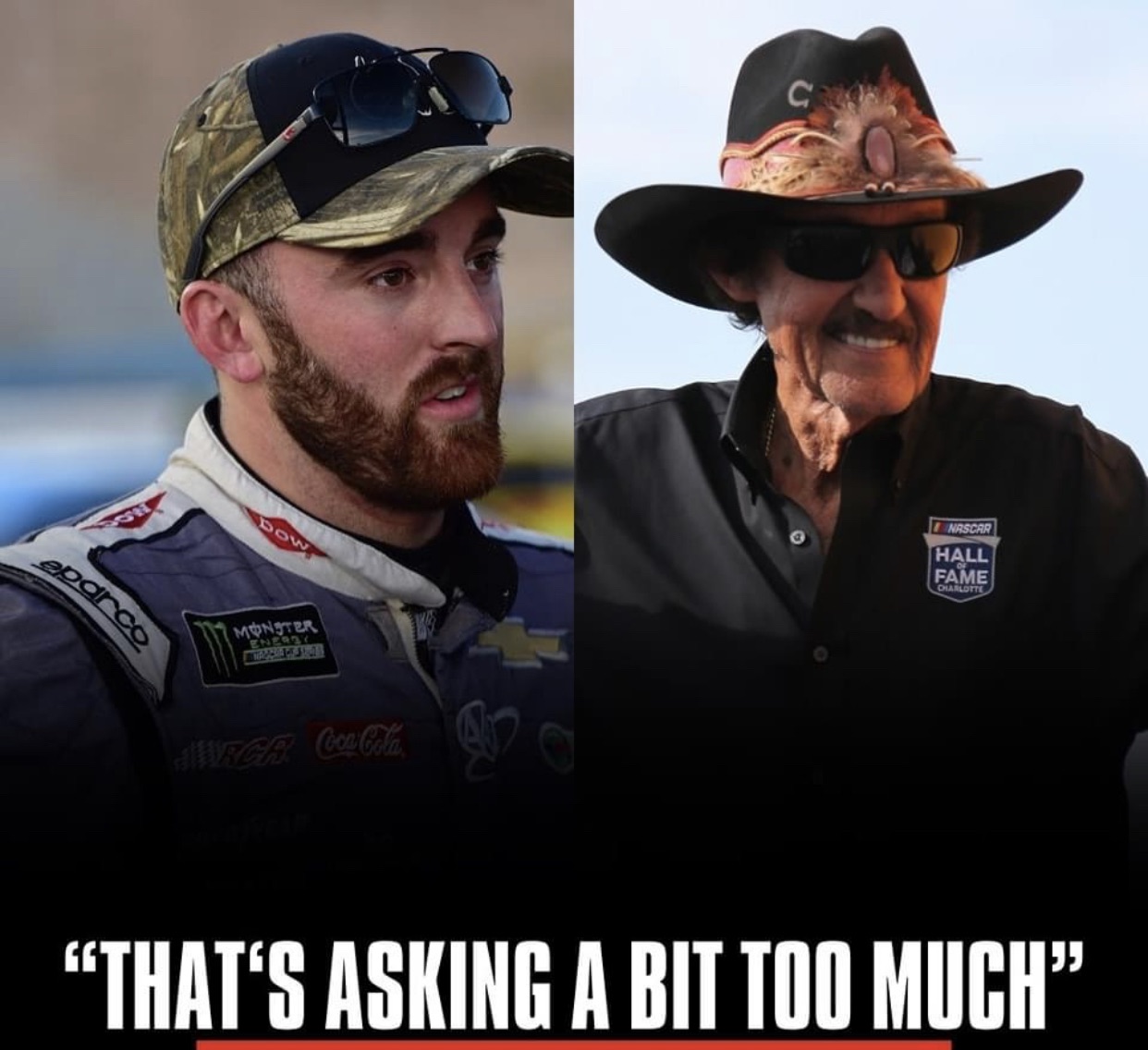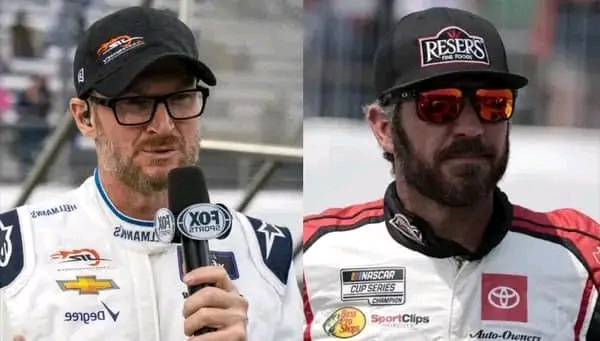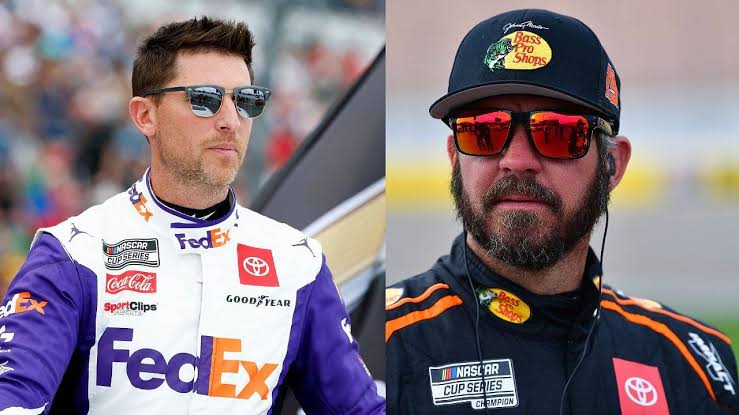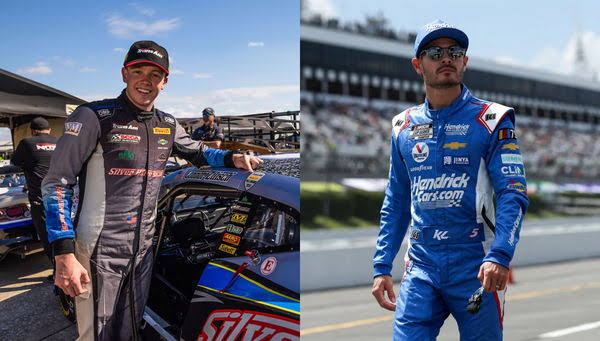The aftermath of the Cook Out 400 at Richmond Raceway continues to reverberate through the NASCAR community, and now one of the sport’s most legendary figures, Richard Petty, has weighed in on the controversy. Known for his unmatched legacy in NASCAR, Petty didn’t mince words when expressing his disappointment with Austin Dillon’s actions during the final laps of the race, where Dillon made aggressive moves that resulted in Joey Logano and Denny Hamlin being taken out of contention.
The Incident: A Controversial Finish
The Richmond race was already highly anticipated, with drivers pushing their limits in the pursuit of a playoff spot. For Austin Dillon, the stakes were particularly high as he needed a victory to secure his place in the 2024 NASCAR Playoffs. As the race neared its conclusion, tensions boiled over. Joey Logano was leading with the finish line in sight, but Dillon, in a desperate bid to win, made contact with Logano, sending him into the wall. In the ensuing chaos, Dillon also collided with Denny Hamlin’s car, effectively sealing the win for himself while dashing the hopes of his competitors.
The incident was immediately met with a mix of shock and outrage from fans, drivers, and analysts alike. Many saw Dillon’s aggressive moves as unsportsmanlike, while others argued that such tactics are part and parcel of racing at the highest level. However, the voice of Richard Petty, a seven-time NASCAR Cup Series champion and one of the most respected figures in the sport, added significant weight to the criticism.
Richard Petty’s Take: A Disappointed Legend
Richard Petty, often referred to as “The King,” is not just a NASCAR icon—he’s a symbol of the sport’s values of competition, skill, and respect. So, when Petty speaks, the NASCAR community listens. In the wake of the Richmond controversy, Petty expressed his dismay over Dillon’s actions, criticizing the young driver for what he sees as a blatant disregard for sportsmanship.
Petty’s criticism was pointed. “There’s a line between racing hard and racing recklessly,” Petty stated in a recent interview. “What we saw from Austin Dillon at Richmond crossed that line. Dumping not one, but two cars to get a win is not the kind of racing we should be encouraging in NASCAR. It’s dangerous, it’s disrespectful, and it sets a bad example for young drivers coming up in the sport.”
Petty, who built his legendary career on consistency, skill, and a deep respect for his competitors, emphasized that while aggressive driving is sometimes necessary, it should never come at the cost of fairness and safety. He acknowledged that the pressure to win is immense, especially with playoff spots on the line, but insisted that there are right and wrong ways to go about it.
“What Austin did was short-sighted,” Petty continued. “Sure, he got the win, but at what cost? You’ve got to think about your reputation, about how you want to be remembered in this sport. Right now, he’s going to be remembered for this wreck, not for any skillful driving or sportsmanship. That’s not a legacy you want to leave behind.”
The Broader Impact: What This Means for NASCAR
Richard Petty’s criticism highlights a broader concern within the NASCAR community: the balance between aggressive competition and maintaining the integrity of the sport. As NASCAR evolves, the pressure on drivers to perform has intensified, especially with the increased emphasis on playoff qualification. However, Petty’s comments serve as a reminder that while the competition is fierce, there must still be respect among drivers.
Petty’s disapproval could also influence NASCAR’s response to the Richmond incident. With a figure of his stature publicly condemning Dillon’s actions, the pressure on NASCAR to enforce its rules and possibly penalize Dillon has only increased. This incident could lead to a broader discussion within the sport about where the line should be drawn when it comes to aggressive driving and what measures should be taken to uphold the sport’s values.
Conclusion: A Lesson in Legacy
Richard Petty’s critique of Austin Dillon serves as a powerful reminder of the values that have long defined NASCAR. While the sport is built on competition and the thrill of the race, it is also grounded in a deep respect for fellow drivers and the traditions of the sport. Dillon’s actions at Richmond, while securing him a victory, have also drawn the ire of one of NASCAR’s most revered figures, raising important questions about the future of racing.
As the debate continues, one thing is clear: drivers will be closely watching how NASCAR responds to this incident. For Austin Dillon, this controversy could be a defining moment in his career—one that will either reinforce or redefine how he is remembered in the sport. And for NASCAR as a whole, this could be a turning point in how the sport navigates the tension between aggressive racing and maintaining the integrity that legends like Richard Petty worked so hard to build.




